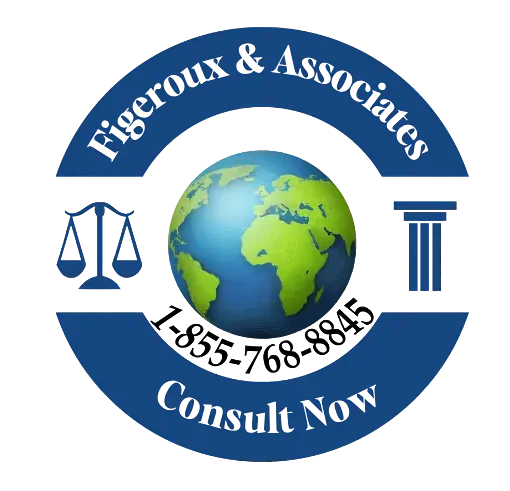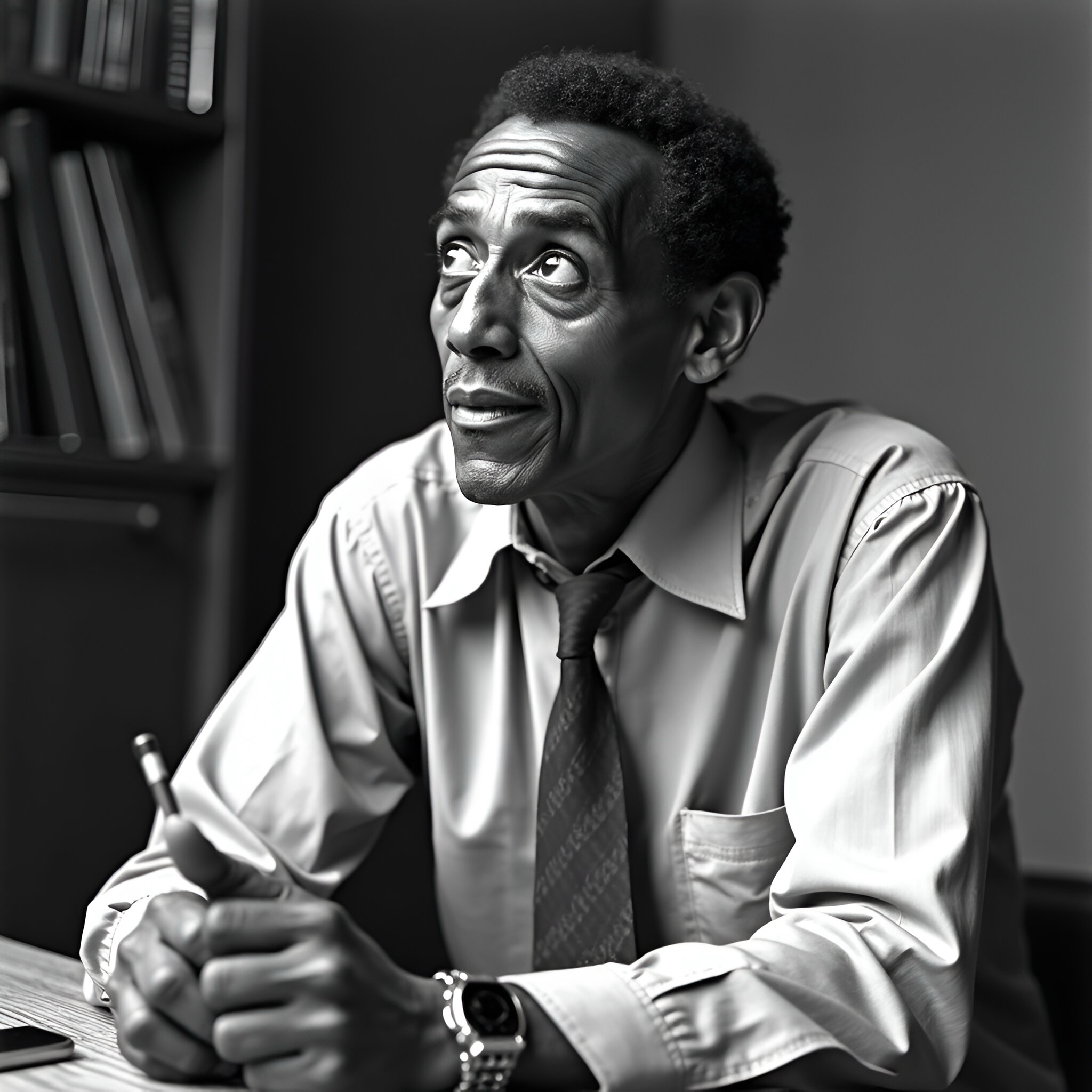By Brian Figeroux, Esq. | Photo credit: A.I Photo
Stokely Carmichael, or Kwame Ture, was a revolutionary thinker, activist, and leader whose contributions to the Civil Rights Movement and the global struggle for black liberation have left an enduring legacy.
Introduction to Stokely Carmichael
Stokely Carmichael, later known as Kwame Ture, was one of the most influential figures in the American Civil Rights Movement and a key advocate for the Black Power movement. Born on June 29, 1941, in Port of Spain, Trinidad, and raised in the United States, Carmichael emerged as a prominent leader who sought to redefine the direction of the movement towards a more radical approach. He was a brilliant organizer, a charismatic speaker, and a fearless advocate for black liberation and self-determination.
Carmichael’s civil rights activism began during the early 1960s when he became involved with the Student Nonviolent Coordinating Committee (SNCC), a leading organization in the movement that emphasized grassroots activism, voter registration, and nonviolent resistance. However, as the decade progressed, Carmichael grew disillusioned with the limitations of nonviolent strategies and integrationist goals. This shift in ideology led him to develop the concept of Black Power, which sought to empower African Americans to build independent institutions, assert their political and cultural autonomy, and resist white supremacy through militant action if necessary.
While Carmichael was a key figure in the American Civil Rights Movement, his Caribbean heritage profoundly shaped his worldview and contributed to his global perspective on black liberation. His life and work spanned the Americas and Africa, making him a Pan-Africanist who connected the struggles of African Americans with those of oppressed people worldwide.
Early Life and Education
Stokely Carmichael was born into a working-class family in Trinidad, where he lived until the age of 11. His parents, Adolphus and Mabel Carmichael, sought better opportunities for their children and immigrated to the United States in the 1940s, settling in the Bronx, New York. Growing up in the United States, Carmichael was exposed to both the harsh realities of racial segregation and the vibrant cultural diversity of black immigrant communities, experiences that would later shape his understanding of race, identity, and struggle.
Carmichael excelled academically, eventually earning a scholarship to attend the prestigious Bronx High School of Science. It was during his teenage years in New York City that Carmichael first became politically aware, influenced by the civil rights activism that was gaining momentum across the South. His exposure to the works of intellectuals like Frantz Fanon, W.E.B. Du Bois, and Malcolm X deepened his understanding of race, colonialism, and the global struggle for black liberation.
In 1960, Carmichael enrolled at Howard University, a historically black institution in Washington, D.C. Howard was a hotbed of intellectual and political activism during the 1960s, and Carmichael was deeply influenced by the rich intellectual tradition and the student activism on campus. He studied under influential figures such as political scientist Ralph Bunche and philosopher Howard Zinn, further developing his political consciousness. While at Howard, Carmichael joined the Nonviolent Action Group (NAG), a student organization that supported the Civil Rights Movement and organized sit-ins and protests against segregation in Washington, D.C.
Introduction to Civil Rights Activism
Carmichael’s formal introduction to civil rights activism came through his involvement with the Student Nonviolent Coordinating Committee (SNCC) in the early 1960s. SNCC was one of the most dynamic and influential organizations in the Civil Rights Movement, known for its commitment to nonviolent resistance and grassroots organizing in the Deep South.
In 1961, Carmichael participated in the Freedom Rides, a campaign organized by SNCC and the Congress of Racial Equality (CORE) to challenge segregation on interstate buses and in bus terminals. The Freedom Riders, both black and white, rode together through Southern states, facing extreme violence, arrests, and hostility from white supremacists. Carmichael was arrested several times during the Freedom Rides, but the experience only strengthened his resolve to fight racial injustice. His courage and determination gained him recognition within SNCC, and he quickly rose through the ranks, becoming a key organizer in the movement.
Throughout the early 1960s, Carmichael worked tirelessly to register black voters in the South, particularly in Mississippi and Alabama, where racist policies and violent intimidation prevented African Americans from exercising their right to vote. He played a central role in organizing the Mississippi Freedom Summer in 1964, a campaign to register black voters and establish Freedom Schools. While the campaign was met with fierce resistance, including the murder of three civil rights workers (James Chaney, Andrew Goodman, and Michael Schwerner), it marked a turning point in the movement and brought national attention to the violent repression of black voting rights in the South.
Rise of Black Power
By 1966, Carmichael became increasingly frustrated with the limitations of nonviolent protest and the slow progress of civil rights reforms. He began to question the effectiveness of integrationist goals, which sought to dismantle segregation through cooperation with white liberals and the federal government. Carmichael believed that these strategies often left African Americans dependent on white support and failed to address the deeper economic and structural inequalities that perpetuated black oppression.
In June 1966, Carmichael was elected chairman of SNCC, succeeding John Lewis. Under his leadership, SNCC shifted toward a more radical approach, emphasizing black self-determination, economic independence, and a rejection of alliances with white liberal organizations. It was during this period that Carmichael introduced the concept of Black Power, a slogan that would become synonymous with the new direction of the Civil Rights Movement.
Carmichael first articulated the idea of Black Power during a march in Greenwood, Mississippi, following the shooting of civil rights activist James Meredith. As Carmichael addressed the crowd, he declared, “What we need now is Black Power!” This statement resonated with the frustrations of many black activists who were tired of nonviolent strategies and slow governmental action. The concept of Black Power emphasized pride in black identity, cultural autonomy, and the right to self-defense against racist violence.
Black Power Philosophy
The philosophy of Black Power, as articulated by Carmichael, called for African Americans to embrace their cultural identity, develop their own institutions, and build independent economic and political power. It rejected the notion of integration as the ultimate goal of the Civil Rights Movement, instead advocating for black self-reliance and control over their own communities.
Key tenets of Black Power included:
- Cultural Pride and Black Identity: Carmichael encouraged African Americans to embrace their African heritage and reject the assimilationist tendencies of the integration movement. This focus on cultural pride inspired the rise of the Black Arts Movement and a resurgence of interest in African history, language, and traditions.
- Political and Economic Autonomy: Black Power emphasized the importance of African Americans building their own political and economic institutions. Carmichael believed that true liberation could only be achieved through self-sufficiency and control over the resources and institutions that shaped their lives.
- Militancy and Self-Defense: While Carmichael initially supported nonviolent protest, he grew to believe that nonviolence was insufficient in the face of white supremacist violence. He advocated for the right of African Americans to defend themselves against racist attacks, aligning with groups like the Black Panther Party, which he later joined as a prominent member.
- International Solidarity and Pan-Africanism: Carmichael’s vision of Black Power extended beyond the United States. He saw the struggle for black liberation as part of a global fight against colonialism, imperialism, and capitalism. Inspired by leaders such as Malcolm X, Frantz Fanon, and Kwame Nkrumah, Carmichael became a committed Pan-Africanist, seeking to unite the struggles of black people worldwide.
Caribbean Heritage and Pan-Africanism
Stokely Carmichael’s Caribbean heritage played a significant role in shaping his political consciousness and his approach to black liberation. Born in Trinidad, Carmichael was part of the African diaspora that experienced the legacies of colonialism, slavery, and racial hierarchy in the Caribbean. Like many Caribbean intellectuals and activists of his time, he was deeply influenced by the region’s history of resistance to colonial rule and its vibrant intellectual tradition of anti-colonial thought.
Influence of Caribbean Intellectuals
The Caribbean has long been a fertile ground for radical intellectualism and resistance to colonialism. Figures such as Marcus Garvey, Eric Williams, and C.L.R. James, all of whom were prominent Caribbean intellectuals, deeply influenced Carmichael’s thinking.
- Marcus Garvey: One of the most important influences on Carmichael’s Pan-Africanism was Marcus Garvey, the Jamaican-born leader of the Universal Negro Improvement Association (UNIA). Garvey’s philosophy of black nationalism and racial pride laid the groundwork for the Black Power movement. Garvey’s call for African Americans to embrace their African heritage and build independent black institutions resonated with Carmichael’s vision of Black Power. Carmichael often cited Garvey’s work as an inspiration, and his advocacy for African liberation was rooted in Garvey’s ideas.
- C.L.R. James: The Trinidadian historian and socialist thinker C.L.R. James was another key influence on Carmichael. James’ writings on colonialism, class struggle, and black resistance in the Caribbean, particularly his work The Black Jacobins (1938), which chronicled the Haitian Revolution, provided Carmichael with a historical framework for understanding the interconnected struggles of African peoples across the globe. James’ emphasis on the importance of revolutionary struggle and the agency of the black masses influenced Carmichael’s growing radicalism and his belief in the need for militant resistance.
- Pan-Africanism and Decolonization: Carmichael’s Caribbean background also exposed him to the broader Pan-African and anti-colonial movements that were sweeping the African continent in the 1950s and 1960s. He closely followed the struggles for independence in African nations, particularly Ghana, which gained independence in 1957 under the leadership of Kwame Nkrumah. Carmichael would later forge a personal relationship with Nkrumah, adopting his name (Kwame Ture) in honor of both Nkrumah and the Guinean leader Ahmed Sékou Touré.
Globalizing the Black Struggle
Carmichael’s Caribbean heritage made him uniquely positioned to view the African American struggle for civil rights within a broader global context. He recognized the parallels between the racial oppression of African Americans in the U.S. and the colonial exploitation of African and Caribbean peoples by European powers. This understanding led Carmichael to advocate for a Pan-African approach to black liberation, one that connected the struggles of African Americans with those of black people worldwide.
After stepping down as chairman of SNCC in 1967, Carmichael increasingly turned his attention to international activism. He traveled extensively throughout Africa, the Caribbean, and Europe, building alliances with anti-colonial movements and advocating for global black solidarity. In 1969, he moved to Guinea, where he worked closely with Kwame Nkrumah and Sékou Touré, promoting Pan-Africanism and socialism. Carmichael’s relocation to Africa was symbolic of his commitment to linking the struggles of African Americans with the broader fight against colonialism and imperialism.
In his later years, Carmichael became a vocal critic of U.S. imperialism and capitalism, arguing that the exploitation of black people was tied to the global capitalist system. He called for the establishment of a unified, socialist Africa, which he believed would serve as a model for black liberation worldwide. His international perspective on black struggle made him one of the foremost advocates of Pan-Africanism in the 20th century.
Legacy of Stokely Carmichael
Stokely Carmichael’s legacy is deeply intertwined with the evolution of the Civil Rights Movement and the rise of the Black Power movement. While his call for Black Power was controversial at the time, it profoundly shaped the direction of black activism in the late 1960s and 1970s. Carmichael’s emphasis on black self-determination, cultural pride, and economic independence resonated with a generation of young African Americans who were disillusioned with the limitations of nonviolent protest and integrationist goals.
Carmichael’s influence extended beyond the United States, as his Pan-Africanism and international activism linked the African American struggle for civil rights with global movements for decolonization and black liberation. His vision of a unified, empowered global black community continues to inspire activists and intellectuals today.
Carmichael’s legacy also includes his role in shaping the discourse around race and power in the United States. His critique of systemic racism, economic exploitation, and the limitations of liberal reforms remains relevant to contemporary discussions of racial justice and inequality. His contributions to the Civil Rights Movement, the Black Power movement, and the global Pan-African movement solidify his place as one of the most important black leaders of the 20th century.
Conclusion
Stokely Carmichael, or Kwame Ture, was a revolutionary thinker, activist, and leader whose contributions to the Civil Rights Movement and the global struggle for black liberation have left an enduring legacy. His early activism with SNCC and his advocacy for Black Power transformed the movement, giving voice to the frustrations and aspirations of African Americans who sought more radical solutions to the deep-seated problems of racial inequality. Carmichael’s Caribbean heritage and his exposure to anti-colonial movements shaped his worldview, leading him to embrace Pan-Africanism and work toward a vision of global black solidarity.
Carmichael’s emphasis on black cultural pride, political autonomy, and economic independence continues to inspire movements for racial justice, and his global approach to black liberation remains relevant in today’s struggles against racism, colonialism, and imperialism. His contributions to both American and global history cement him as one of the most influential figures in the fight for black freedom.
Click Here to Schedule a Consultation with Figeroux & Associates Today!

